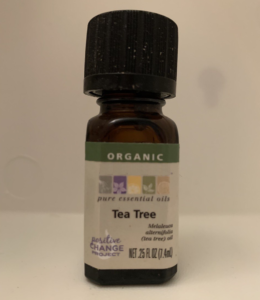Integrative Approaches for Tinnitus Treatment
Tinnitus is a common condition where a person hears ringing or other sounds in one or both ears that is not from an actual source. Typically, tinnitus is related to hearing loss and becomes more prevalent with age. Tinnitus is often temporarily worsened by exposure to noise of similar frequencies, although for others, tinnitus is constant (Perez-Carpena 2021).

Estimates for the prevalence of tinnitus in the United States suggest around 10% of the population has the condition (Bhatt 2016). In the study, they found that a quarter of individuals with tinnitus had symptoms for more than 15 years, and around a third had constant, unremitting symptoms. In severe cases, for some individuals, tinnitus can be debilitating.
Unfortunately, as of yet, there is no general consensus on treatment. European research-based guidelines state that there is not enough evidence to make recommendations for any standard or alternative therapy (Cima 2019).
Causes of Tinnitus
Tinnitus usually occurs after hearing loss, often from loud noises, or from toxic exposure to drugs known to damage hearing (Langguth 2013). Typically, there is hearing loss in the frequency range of the perceived tinnitus (Norena 2002). Tinnitus has also been reported to have strong correlations with emotional trauma or stressful life events (Pupić-Bakrač 2020).
Interestingly, tinnitus appears to have “oxidative stress” as a contributing factor (Celik 2018). Oxidative stress is caused by an excess of free radicals that have a free electron. This free electron can tear electrons from other molecules causing a cascade of damage. Excess free radicals in the inner ear likely predispose to the condition.
Integrative Treatments
Integrative treatments for tinnitus include:
- Melatonin
- N-acetylcysteine
- CoQ10
- Sound therapies
Melatonin
Melatonin is often thought of as a sleep hormone. However, research is uncovering numerous potential benefits on everything from migraines to cancer. For a review of melatonin you can read my previous two part series Melatonin, a Sleep Hormone with Many Uses.
Studies have also uncovered benefits of melatonin on tinnitus. Melatonin is an antioxidant and may enhance blood flow to the inner ear, relax internal ear muscles that can contribute to tinnitus, and improve immune function (Pirodda 2010).
Clinical trials of melatonin for tinnitus have been somewhat mixed, but suggest benefits. The most recent trial compared melatonin to sertraline, an antidepressant, and found that they both improved tinnitus symptoms, although melatonin was more effective (Abtahi 2017). A separate trial compared melatonin treatment to melatonin plus steroids and found both effective for reducing symptoms, although steroids modestly improved the results over melatonin alone (Albu 2014). An earlier trial also found melatonin improved tinnitus 40%, although improvement was better when combined with an additional drug therapy (Lopez-Gonzalez 2007).
N-Acetylcysteine (NAC)
N-acetylcysteine is an amino acid combined with acetic acid. This combination helps improve stability and absorption, allowing NAC to act as an effective precursor for L-cysteine (Akuri 2007).
As a precursor, N-acetylcysteine raises levels of L-cysteine needed to create glutathione. Glutathione is the body’s master antioxidant protecting from numerous types of free radical damage (Teskey 2018). These antioxidant effects may be why NAC appears helpful for treating some cases of tinnitus.
A study on military accidents where individuals were exposed to intense noise were treated with NAC. When given after exposure, NAC reduced the risk of temporary hearing loss—a risk factor for tinnitus—by 39% (Rosenhall 2019). However, a study on subjects exposed to loud nightclub music showed no benefits from NAC (Kramer 2006). The nightclub noise may not have been as loud as the military acoustic accidents, causing less hearing damage and minimizing benefits from NAC supplementation. Interestingly, in a trial using NAC for treating depression, one patient had a remarkable decrease in her chronic tinnitus as a side effect (Dean 2013).
Evidence using NAC injected into the inner ear also suggests that it protects from drugs known to cause hearing loss (Waissbluth 2020). While more research is needed, with appropriate use, NAC is quite safe and may have a place in protecting and supporting the inner ear from hearing loss and tinnitus.
CoQ10

CoQ10 is an antioxidant involved in energy production throughout the body. Early evidence is starting to suggest that it may have some benefits for protecting from hearing loss and treating tinnitus. A small trial treated patients with tinnitus using CoQ10. Interestingly, patients with low serum CoQ10 derived significant benefits, suggesting that low levels of CoQ10 could be a factor in the condition (Khan 2007).
In a later clinical trial, a water soluble form of CoQ10 was administered to assess it’s protective effects against noise exposure. After taking CoQ10 for 30 days, individuals were then exposed to a loud noise. Patients on CoQ10 recovered their hearing more quickly than without (Staffa 2014). A separate study using CoQ10 with a multivitamin found that the combination was effective for protecting from hearing damage in cancer patients induced from chemotherapy (Scasso 2017).
While more evidence is clearly needed, the initial data suggests CoQ10 might be another antioxidant capable of protecting from hearing loss and reversing some symptoms of tinnitus, especially in patients with low CoQ10 levels.
Noise Therapy
Different types of sound therapy are also being explored for the treatment of tinnitus. Patients with tinnitus were fitted with hearing aids that played a constant, low level background noise to try and reduce the brain’s perception of the tinnitus. After three months of low noise level exposure, 42.9% of patients no longer had tinnitus (Mondelli 2021). The brain had adapted and effectively blocked out the tinnitus sounds.
An earlier pilot study used different background noises provided through hearing aids and also found significant improvements for most patients suffering from treatment resistant tinnitus (Suzuki 2016). While it’s still in its infancy, sound therapy for tinnitus appears to hold promise for significant improvements with minimal side effects. The biggest drawback is the cost of the hearing aids.
Conclusion
Tinnitus, especially when severe, can be debilitating. No standard treatment is recommended and alternatives are worth considering. While data is preliminary, the risks from melatonin, NAC, CoQ10 and noise therapy are minimal. These treatments may be worth considering in patients struggling with the condition.



